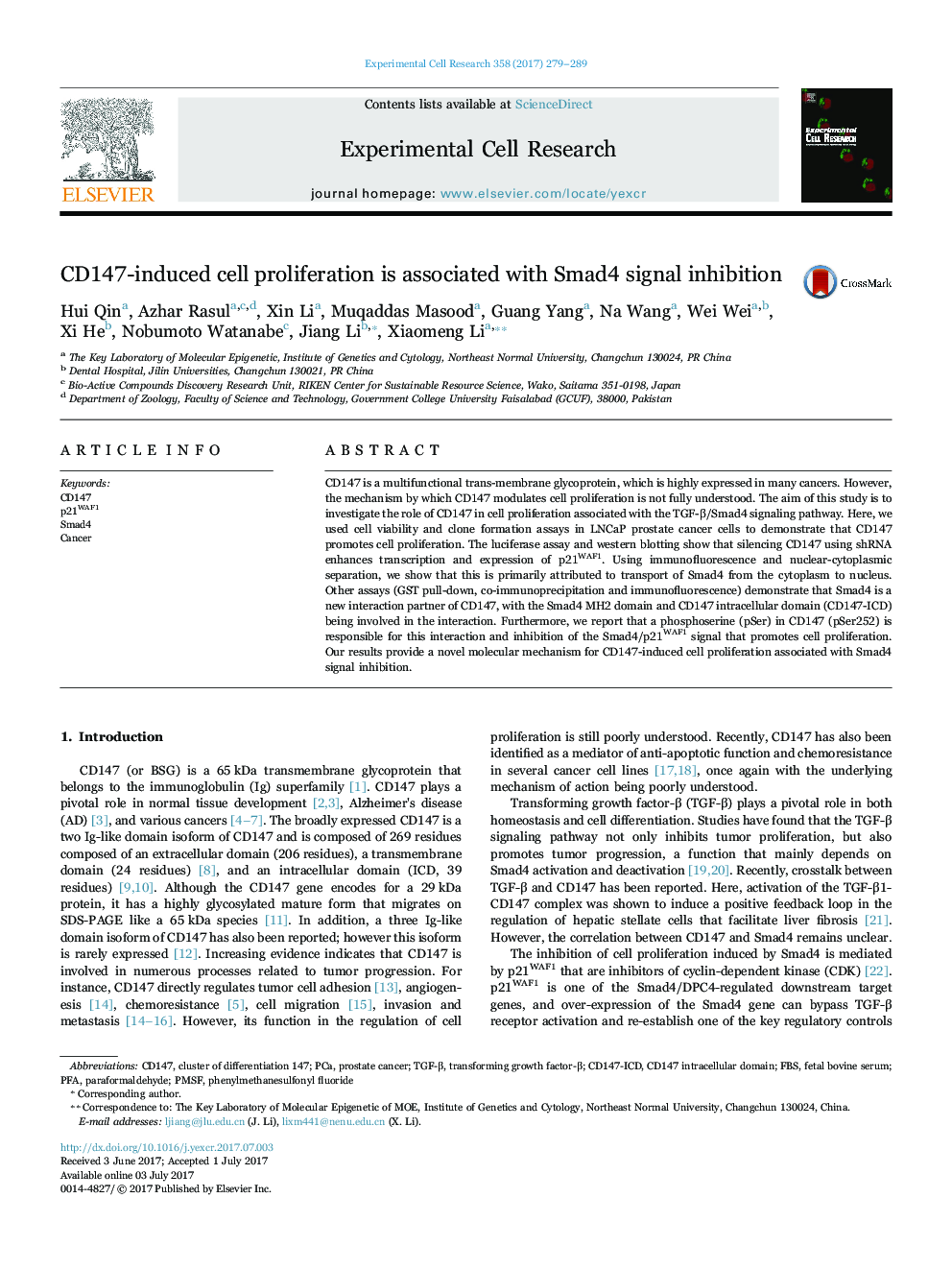| Article ID | Journal | Published Year | Pages | File Type |
|---|---|---|---|---|
| 5527166 | Experimental Cell Research | 2017 | 11 Pages |
â¢Smad4 interacts with CD147 via the MH2 domain.â¢CD147 prevents Smad4 translocation into the nuclear to regulate p21 transcription.â¢CD147 inhibits p21 transcription and expression independent on p53.â¢pCD147-S252 is responsible for interaction with Smad4 and p21 down-regulation.
CD147 is a multifunctional trans-membrane glycoprotein, which is highly expressed in many cancers. However, the mechanism by which CD147 modulates cell proliferation is not fully understood. The aim of this study is to investigate the role of CD147 in cell proliferation associated with the TGF-β/Smad4 signaling pathway. Here, we used cell viability and clone formation assays in LNCaP prostate cancer cells to demonstrate that CD147 promotes cell proliferation. The luciferase assay and western blotting show that silencing CD147 using shRNA enhances transcription and expression of p21WAF1. Using immunofluorescence and nuclear-cytoplasmic separation, we show that this is primarily attributed to transport of Smad4 from the cytoplasm to nucleus. Other assays (GST pull-down, co-immunoprecipitation and immunofluorescence) demonstrate that Smad4 is a new interaction partner of CD147, with the Smad4 MH2 domain and CD147 intracellular domain (CD147-ICD) being involved in the interaction. Furthermore, we report that a phosphoserine (pSer) in CD147 (pSer252) is responsible for this interaction and inhibition of the Smad4/p21WAF1 signal that promotes cell proliferation. Our results provide a novel molecular mechanism for CD147-induced cell proliferation associated with Smad4 signal inhibition.
